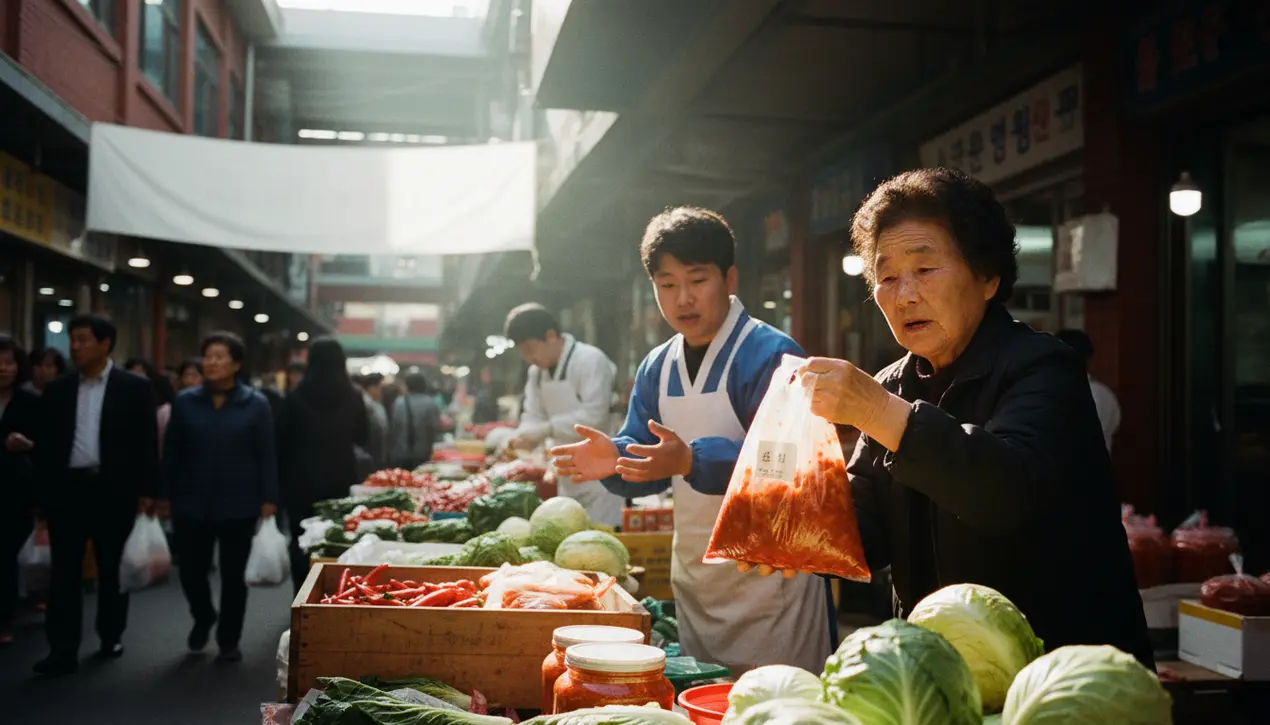
Otherfood & diningFood Industry News
South Korea's Kimchi Trade Deficit with China Grows
ME
Megan Hill
10 hours ago7 min read2 comments
In a culinary twist that's got foodies and patriots alike in a tizzy, South Korea's beloved kimchi—that spicy, fermented cabbage dish that's practically the nation's soul in a jar—is facing an identity crisis. 🤔 While global demand for authentic Korean kimchi is hitting record highs, with exports climbing 2% to a tasty $137.39 million from January to October, there's a sour note back home: a growing chunk of the kimchi served in bustling Seoul restaurants and even tucked into family fridges is actually made in China. Yep, you read that right! According to the latest trade data, South Korea imported a whopping $159.46 million worth of kimchi from China during that same period, a 3. 1% jump that's left the country with a kimchi trade deficit.It's like discovering your favorite local coffee shop secretly sources its beans from a chain—it just feels off. 🥬✨ This isn't just about numbers; it's a cultural story simmering for years.Kimchi, with its centuries-old roots in Korean tradition, is more than a side dish; it's a symbol of heritage, often prepared in communal kimjang events where families gather to make huge batches for winter. But as labor costs rose and younger generations drifted from time-intensive homemade methods, cheaper Chinese imports began flooding the market.Chinese kimchi, often made with lower-cost ingredients and scaled production, now accounts for over 40% of kimchi consumed in South Korea, a stat that's got chefs and grandmothers shaking their heads. I chatted with Lee Min-ji, a food blogger in Busan, who told me, 'It's heartbreaking to see our national dish becoming a commodity.When I buy kimchi, I look for the Korean flag on the label—it's about supporting our farmers and preserving our taste. ' But it's not all doom and gloom; this deficit highlights a bigger global appetite for Korean culture, from K-pop to kimchi, and many local producers are innovating with premium, organic varieties to compete.Still, as one Seoul street vendor joked while serving up kimchi pancakes, 'If this trend continues, we might need to call it Kimchi-ese!' 😅 The situation mirrors broader trade dynamics, where cultural icons become battlegrounds for economic and identity debates—think Italy's protection of Parmigiano-Reggiano or France's champagne laws. For South Korea, it's a wake-up call to balance globalization with cultural preservation, ensuring that every crunchy, tangy bite of kimchi tells a story that's authentically Korean.
#South Korea
#kimchi
#trade deficit
#imports
#exports
#China
#food industry
#featured
Stay Informed. Act Smarter.
Get weekly highlights, major headlines, and expert insights — then put your knowledge to work in our live prediction markets.
Comments
Loading comments...
© 2025 Outpoll Service LTD. All rights reserved.